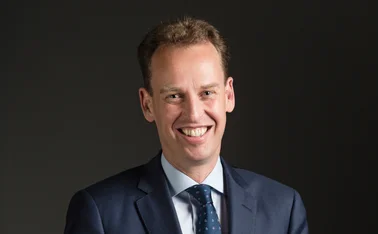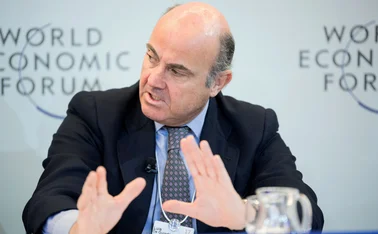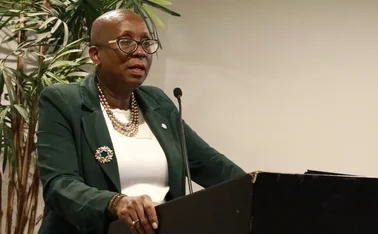
Robert Pringle’s Viewpoint: Looking for a game-changer for the financial system

"Those who cannot remember the past are condemned to repeat it." Philosopher George Santayana's oft-quoted aphorism comes to mind when surveying the plethora of retrospective articles five years on from the collapse of Lehman Brothers. Many people have asked, ‘have we learnt the right lessons?' And, ‘what has really changed?' ‘Have reforms gone far enough?' Anat Admati, co-author of an esteemed book, The Bankers' New Clothes, calling for banks to hold more, better-quality capital, headlines a recent piece: ‘Five years of financial non-reform'. Many other commentators equally express doubts about the adequacy of the reform agenda. The underlying incentives to excessive risk-taking remain. Moral hazard is, if anything, greater than before; the big financial groups are even bigger; expectations of central banks remain absurdly inflated; the wrong culprits are still blamed (for example, China's so-called excess savings); and so on.
Doubtless the measures taken by regulators and by banks themselves have indeed made the financial system stronger, but strong enough? Bankers will find ways to express their underlying risk appetite whatever the regulators do. That is why experienced regulators always insisted – in the ‘bad old days' – that regulatory capital had to be in line with the grain of the market. John Vickers, chairman of the Independent Commission on Banking in the UK, now says that capital ratios should be twice what his own commission recommended only two years ago. This seems somewhat arbitrary, to say the least. If twice, why not three times? Mark Carney, chairman of the Financial Stability Board as well as governor of the Bank of England, trots out his committee's laundry list of ongoing reforms to international standards. Yet, as he well knows, his predecessors, such as Hans Tietmeyer, former head of the Deutsche Bundesbank, did exactly the same after previous crises. The Tietmeyer report led to the establishment of the Financial Stability Forum (FSF) in 1999. Can Carney give any reason why we should believe that ‘his' layers of regulation should be more effective than those erected by the FSF, with the able leadership of the late Andrew Crockett (former head of the Bank for International Settlements (BIS)) and that generation of regulators?
Looking back to 1999 raises another pertinent question about Santayama's aphorism: which ‘past' should we remember? Specifically, which segment of financial history holds the lessons we need to learn, or relearn?
If I were to pick a year, it would not be 2008 but rather 2003. It was then that the pieces fell into place – a particular set of policies, an analytical framework and ‘conventional wisdom' – that dominated policy debate in the five years to the crisis. Today's debate eerily echoes the themes discussed then. The US was expanding rapidly, and even Japan was showing signs of life. The International Monetary Fund, private forecasters and governments all worried whether the ‘recovery' was sustainable. There was fear of deflation. A war in the Middle East was unsettling confidence. There was concern about the availability of credit. Rising house prices were seen as justified by fundamentals. Economists worried about global imbalances: would China ‘allow' the US to devalue? Early versions of forward guidance were all in vogue. Fears of an early rise in interest rates were countered by promises to hold them down. And so they were.
True, there are differences. Then, the Greenspan doctrine was in the ascendant – better to clean up after bubbles burst rather than lean against the build-up of imbalances. That doctrine has been discredited, hasn't it? Perhaps. But the point is that it was out of the question – then as now – to take measures to counter an incipient asset price boom if such action might jeopardise the ‘recovery' (itself a telling word, suggesting the expansion of the late 1990s was ‘normal'). After all, inflation was under control. Meanwhile, regulators congratulated themselves on the significant efforts over the years to strengthen the financial infrastructure and to diversify funding sources. There was, said the BIS in its annual report for 2003, great satisfaction to be had from "the resilience of banking systems in most industrial countries": "Financial institutions generally, and banks in particular, seem to have become more conscious of the risks they run and the need to manage risks more carefully," the report said (see page 9).
In the financial press, warnings of a looming debt crisis were dismissed as ‘tabloid panic'.
Even with the benefit of hindsight, given the rules of the game – that is, the incentives facing governments, central banks and bankers – it is difficult to see what could have been done differently. Yes, a debt-fuelled asset price boom, global imbalances and liquidity growth over the years from 2003 to 2007 were ‘to blame', as were the governments and central banks involved. Central bankers should have shouted louder about financial sector weaknesses. Yet they were following their mandates. And their ‘state of the art' economic models told them they were doing the right thing.
Now, 10 years on, it is clear that we cannot go on as we are. Reforms are widely deemed inadequate. The rules of the game have to be changed so as to bind governments as well as change the incentives for central banks and the private sector.
There's only one kind of reform that will do that – reform of the international monetary system. This is the missing element in the current programme, not as a substitute but as a complement to reform of banking and finance. Only a commitment to an agreed set of exchange rates among major currencies anchored to a common numeraire will provide the framework necessary to facilitate sufficient co-ordination of monetary policies together with fiscal policy discipline required to sustain globalised financial markets without capital controls.
William White, the distinguished economist now the chairman of the Economic Development and Review Committee at the Organisation for Economic Co-operation and Development, has published a paper, Is Monetary Policy a Science? The Interaction of Theory and Practice Over the Last 50 Years, as part of the Dallas Fed working paper series with some sombre reflections on the crisis. In it he calls for a complete rethink of monetary policies, in the light of the financial crisis, including the role played by the international monetary (non) system. Under flexible rates, he points out, free capital flows have repeatedly moved exchange rates a long way from equilibrium. He fears currency wars between advanced economies and emerging markets, and ‘competitive devaluations' among emerging markets. "The fact that the crises have had implications for virtually all major countries intuitively supports the search for a common global source for these problems," he said.
Significantly, even the merits of autonomous national monetary policy can (and, he implies, should) be questioned. He cites a 2011 Brookings Institution paper, Rethinking Central Banking, as calling for a global monetary authority.
Likewise, authors as far apart in ideological perspectives as Justin Lin Yifu, former chief economist at the World Bank and now head of an influential institute in Beijing, and David Stockman, former budget director in the Reagan administration, call for monetary reform as the only way forward. Both have written angry, passionate books denouncing the current conventional wisdom. Lin calls his Against the Consensus: Reflection on the Great Recession; Stockman's is The Great Deformation: The Corruption of Capitalism in America. (Both will be reviewed in the forthcoming edition of Central Banking).
I am aware that such reforms are still far over the political horizon. But new challenges to conventional wisdom from independent economists as well as observers in the two economic superpowers may be straws in the wind. Remember, former central bankers to believe strongly in the need to restore a real international monetary system include outstanding leaders such as the late Tomasso Padoa-Schioppa as well as Jacques de Larosière and Paul Volcker.
Among the current crop of top central bankers, we probably have to look to emerging markets for people with the insight, independence of mind and courage to press for such reform. Let us hope that Raghuram Rajan, the newly appointed governor of the Reserve Bank of India, will find time to press for the systemic reforms of the kind he describes in his 2010 book, Faultlines, and that Zhou Xiaochuan, governor of the People's Bank of China, renews the clarion call he made in his famous 2009 speech, urging the establishment of a global reserve currency. The inward-looking, ‘inflation-targeting' financial elites of Europe and North America need to be forced to sit up and pay attention.
Robert Pringle is the founder of Central Banking Publications and author of The Money Trap. A paperback edition of the book, urging radical reform of banking and international money, will be published by Palgrave Macmillan in January 2014.
Only users who have a paid subscription or are part of a corporate subscription are able to print or copy content.
To access these options, along with all other subscription benefits, please contact info@centralbanking.com or view our subscription options here: http://subscriptions.centralbanking.com/subscribe
You are currently unable to print this content. Please contact info@centralbanking.com to find out more.
You are currently unable to copy this content. Please contact info@centralbanking.com to find out more.
Copyright Infopro Digital Limited. All rights reserved.
As outlined in our terms and conditions, https://www.infopro-digital.com/terms-and-conditions/subscriptions/ (point 2.4), printing is limited to a single copy.
If you would like to purchase additional rights please email info@centralbanking.com
Copyright Infopro Digital Limited. All rights reserved.
You may share this content using our article tools. As outlined in our terms and conditions, https://www.infopro-digital.com/terms-and-conditions/subscriptions/ (clause 2.4), an Authorised User may only make one copy of the materials for their own personal use. You must also comply with the restrictions in clause 2.5.
If you would like to purchase additional rights please email info@centralbanking.com








